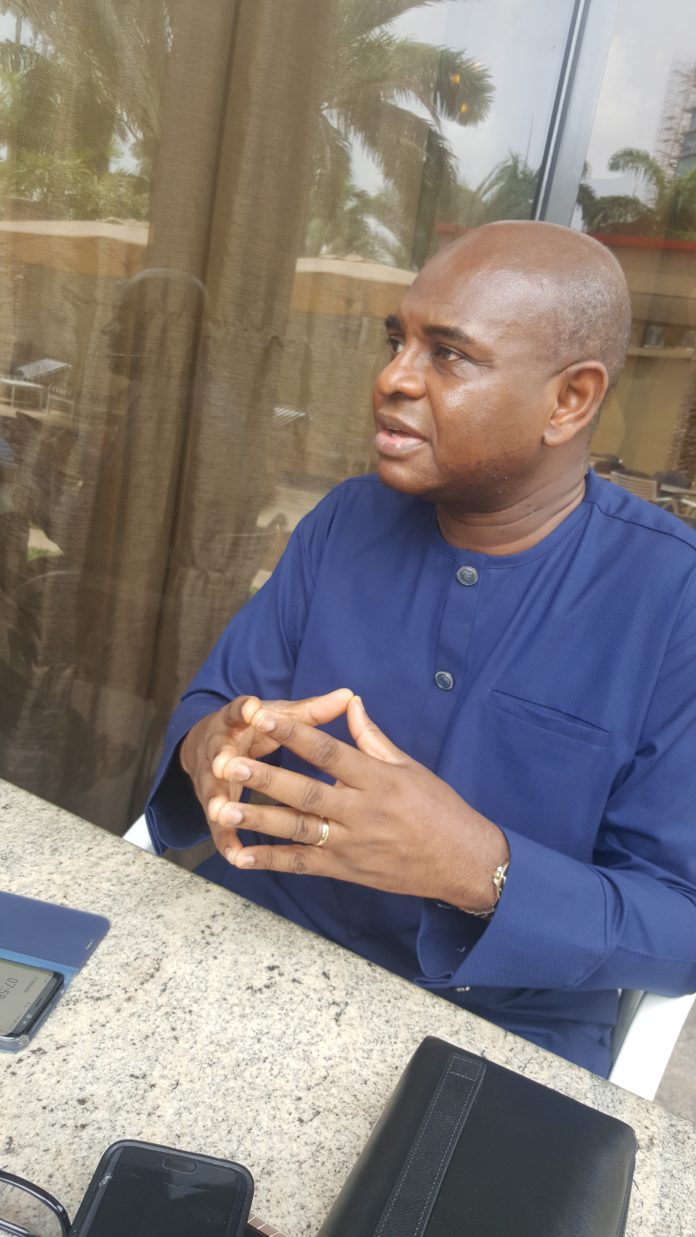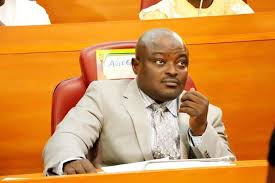By Onyewuchi Ojinnaka
Senior Correspondent
Development reporting simply means that journalism in developing countries should contribute to social transformation by educating and informing the citizenry on activities that contribute to economic and social development, highlighting the importance of those issues and activities.
This was the view of former deputy governor of Central Bank of Nigeria, Professor Kingsley Moghalu, in his keynote address titled ‘Development Reporting and Hysteria Journalism’ at the TheNiche 4th Anniversary lecture held at the Nigerian Institute of International Affairs, Lagos.
Prof. Moghalu who is also the president, Institute for Governance and Economic Transformation, posited that there is a conscious bias by the media towards what is seen as a larger goal of the society and less emphasis on other issues that may be newsworthy but are seen as trivial or just not advancing the desired consciousness that development journalism seeks to create.
He recalled that in the 50s, 60s and 70s, development journalism was practiced as the role of the government was in the society, adding that the economy was very strong in many countries including Nigeria.
According to him, “In some countries with socialist governments, there simply was nothing else. As from the 1980s with economic liberalization, development journalism began to die a natural death as the media sought to survive in increasingly capitalist economies by being relevant to its consumers by giving more attention to new trends.”
Speaking on Investigative journalism and social transformation, Moghalu who is also a presidential aspirant in the forthcoming 2019 general elections said that one of the major ways by which the media can play a role of a catalyst in social transformation is through investigative journalism.
“By uncovering evidence of malfeasance and shedding light on social ills, journalists can influence public discourse in a major way. There is so much that is wrong with our country today and a vibrant tradition of investigative reporting can help change this” he said.
He posited that the tradition of investigative reporting in Nigeria is dying slowly whereas the news has become more commercialized. He admitted that speaking truth to power and going beyond press releases is never easy, but that is what mus5t be done in order to truly make an impact.
“Good investigative journalism is about resources, and the ability for editors and publishers to resist external pressure when reporters ask uncomfortable questions. There is a general absence of both, and that is a key reason why there are so many important stories which remain untold”
He noted that ownership of the Nigerian press has always been centered on the politicians as far back as pre-independence era, adding that the core use of media by politicians is to advance an agenda that served their narrow interests.
“Nigeria’s press cannot play an effective developmental role because the elite who own these media have no worldview. Their only concern is to access to political power and unfortunately, these outlets are deployed in pursuit and maintenance of this access”
Speaking on Hysteria journalism, the former CBN deputy governor stated that it is closely linked to entertainment quotient of journalism which currently thrives, stressing that it seeks to play on the latent prejudices of readers and has the effect of reducing public discourse to a shouting match and leaving the public less informed.
“Hysteria journalism is a reflection of our country and the magnified fault lines that exists in it today. The destructive tone and divisive rhetoric of Nigeria’s political class is what is largely responsible for hysteria journalism in Nigeria today”
He mentioned the as example the recent controversy that engulfed the release of so called “looters list” and the discussion on the removal of subsidies in 2012 among other issues.
TheNiche organized event was attended by very eminent personalities, some of who are Prof. Remi Sonaiya,Professor of French language and Applied linguistics, Obafemi Awolowo University and former presidential candidate; Senate President Bukola Saraki, ably represented by Senator Ben Murray Bruce; Funke Egbemode, President Nigerian Guild of Editors and Managing Director/Editor-in-Chief, New telegraph Newspaper; Obinna Nwosu, former Deputy Managing Director of Access bank; Prof Fred Aja Agwu; Prof Anya O Anya, Joe Igbokwe; HRH Kalu Kalu Ogbu of Abriba Kingdom in Abia State; Barrister Chidi Nwuke; Barrister Richard Nwankwo of Crusade for Justice; Elder Umah Eleazu; and a host of other personalities.















